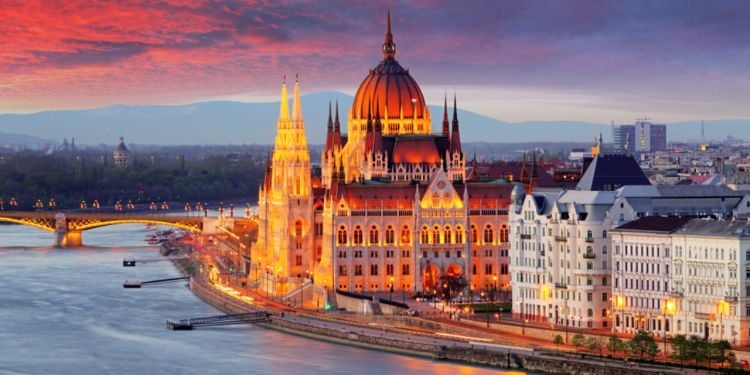
When most people hear about Hungary, they people think about the Parliament building, Buda with its castle and the river Danube. Still, Budapest has lots more to offer you as an expat. Here are some basic facts you should know before landing in this beautiful city.
The climate in Budapest
If you come in the summer, expect heatwaves and a lot of sunshine with occasional thunderstorms. There are more rainy days in autumn and spring, and some snow and freezing temperature in the winter. At least, this was the weather in general in the past, but now it seems to change with more extreme weather, and sudden changes in the temperature from one day to the other.
Getting around Budapest
Don't expect that everything will go smoothly from the first moment, as you might find yourself struggling with getting a bus ticket or finding your way to your accommodation due to numerous railway works and modified transport services. Check every little paper notification at the stations or try to ask for help, but be prepared, not everyone will speak English or any other foreign language, especially in the older generation.
The language in Budapest
As Hungary is in Eastern Europe and was under Soviet rule before 1990, people think that Hungarians speak Russian or any other Slavic language. Well, they don't. Their language is Hungarian, which is not similar to the languages of any of the neighbouring countries. The closest language relation is to the Finnish.
The local food scene
Probably the most famous Hungarian product is the local cuisine, with gulyas and paprika the most known, but the drinks, like palinka, which is a very strong shot made traditionally from fruits like plum, pear and peach, and red and white wines from Tokaj, Eger and Balaton are famous too. As alcohol is quite cheap, especially for people coming from Western and Northern Europe, but be careful with drinking, and don't be tempted to get more rounds than you can handle.
Shopping and cost of living in Budapest
If you are in the city centre, you can choose from a wide range of restaurants, cafes, bars and pubs, but here you will pay extra for the location. The same food or drink might cost you a lot more in district V, VI or VII than in other, outer districts. Doing your daily/weekly grocery shopping should be easy anywhere you live, as you can find food stores like Spar, Tesco express, Lidl, Aldi or the Hungarian chains like Penny or CBA all around the city. Bigger supermarkets like Interspar, Tesco and Auchan are rarer; you can usually find them in distant locations.
The prices are generally low compared to other cities, especially if you are a tourist or working for an international company. For Hungarians, not so much as the Hungarian salary is quite low. The average is around 600 Euros per month. This is one of the reasons you might find some people a bit stressed and not so happy, but if you get to know them, you will realise that most Hungarians are friendly and welcoming, and will try to help you if you are seeking for advice.
Prices in the city centre are generally higher, but you can find more options here. Most places like theatres, cinemas, concert halls and museums are located here as well. Tickets for cultural experiences are not expensive, except some of the world-famous ones which are similar to international prices.
You can read more about the cost of living in our other articles like Finding accommodation in Budapest, Student life in Budapest, etc.
We do our best to provide accurate and up to date information. However, if you have noticed any inaccuracies in this article, please let us know in the comments section below.







